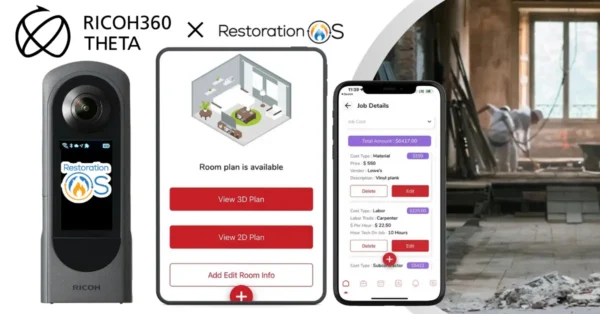The study yields some surprising insights into what is really going on in the workplace.
Plenty of ink has been spilled writing about the conflicts between baby boomers and millennials in the workplace. Millennials are stereotyped as lazy and oversensitive, while boomers get written off as technologically incompetent and opposed to change. Now that generation Z, those born between 1995 and 2015, is entering the workforce, it’s reasonable to imagine that those problems have only compounded. However, a recent study by Ricoh USA tells a different story.
In a survey of 1,500 workers across the United States and Canada, Ricoh asked respondents how they felt about their intergenerational coworkers, technology, and the changing business landscape. Contrary to popular assumptions, 71% of respondents “find a cross-generational workplace an asset to a company,” while 76% of them “enjoy working alongside colleagues of different ages.”
Chris Glover, channel marketing manager at Ricoh U.S.A, was enthusiastic about the findings.
“I think any time people talk about change, there’s a fear about change inherently,” said Glover. “But the good news is, if you look at the survey, three out of four respondents think working with multi-generations and different people are a positive.”
So, why does the data look so different from the discourse? It’s easy to find interviews with millennials and boomers alike complaining about the challenges of adapting to a different generation’s way of doing things, and employers have been wringing their hands about the difficulty of integrating millennials into the workforce for the better part of the 21st century.
Part of the explanation may be simple marketing; controversy generates clicks. People of all ages enjoy imagining that anyone older or younger than them is approaching everything in the wrong way. But the negative impulses people indulge in when they’re scrolling through their newsfeeds may, happily, not be how they really feel in the workplace.
“When you take a survey, you’re really independent of other people’s opinions,” said Glover. “When you’re on a forum or a panel, you can be very jaded about what other people are saying and you don’t want to be the different one. You go along with it, even if you might not believe it, but in a survey, you’re going to answer much more honestly. When we see that people say, “˜I like working with people from other generations,’ I think that’s much more powerful than what a group of people say together.”
Not only are older and younger workers much happier to collaborate than pop culture would have you believe, but fears that older workers still struggle to adapt to new technology may also be unfounded. Fully 66% of the workers surveyed agree that “technology should play a central role” in helping them be productive, while an overwhelming 74% believe that “the best workplaces invest in digital technologies for upskilling staff.”
If there ever truly was a conflict between older, analog workers and younger, digital ones, the issue has long since been settled. In fact, 68% predict dramatic changes to the business world in the coming years.
No matter the generation, collaboration has always been the best way to survive in a changing environment, whether it’s physical or digital. Even Glover himself, a gen-X worker sitting squarely between the two cohorts most intergenerational conversations focus on, has found his younger colleagues to be great resources when it comes to adapting to new technology.
“The way things have changed now, with Ricoh’s interactive whiteboards and the Ricoh Unified Communication System, it allows us to interact with people and see them and manipulate the screen in real time,” said Glover. “Because I was a little bit older, I was hesitant. At Ricoh, we have a good mix of people and I’m not at all afraid to go to them and ask for help on how to use the technology. There hasn’t been anyone in generation Z that would not go out of their way to help me out.”
A big part of embracing change is accepting that it’s not only our workplace that’s changing, but also our climate. The survey also found that 65% of workers agree that “sustainability needs to be at the center of business and product strategies in the next five to 10 years.” Ricoh has taken this idea even further, making sustainability one of the key pillars of its business.
“It’s something that we’ve been doing for a long time,” said Glover. “We feel that we’re a leader in this. One of Ricoh’s big goals is to align itself with the U.N.’s sustainable development goals. One of the top priorities Ricoh is to reduce our CO emissions to zero by 2050.”
Not only is this good corporate citizenship, it makes good business sense. Workers who list sustainability as a high priority for their personal values are likely to seek out companies that share those values.
Even though the business world is a very different place than it was when boomers first entered the workforce, work is still a core part of who we are and how we see ourselves. Across all generations, an average of 59% of respondents said they view their work as “a key factor in defining who I am as a person.” Businesses need to make sure they’re as aligned with their workers’ values as the workers are with theirs, and the sun looks bright there too, with 72% on average reporting that they believe in their company’s values and ideals.
Glover sees plenty of reason for optimism in these results.
“What’s important to take away from the survey is people understand the importance of technology across generations,” stated Glover. “They understand the importance that technology has on making them more productive but also the company better.”
Businesses and workers are on the right track, but to stay headed in the right direction, businesses need to listen to what workers are telling them. Companies need to make thoughtful, well-implemented investments in technology that not only increase efficiency, but also make it easier for colleagues to communicate with each other. Leaders and employees from the top down should be striving to encourage collaboration and foster the potential of every worker by building diverse teams and offering them diverse ways to be productive.
Access Related Content
Visit the www.thecannatareport.com. To become a subscriber, visit www.thecannatareport.com/register or contact cjcannata@cannatareport.com directly. Bulk subscription rates are also available.




